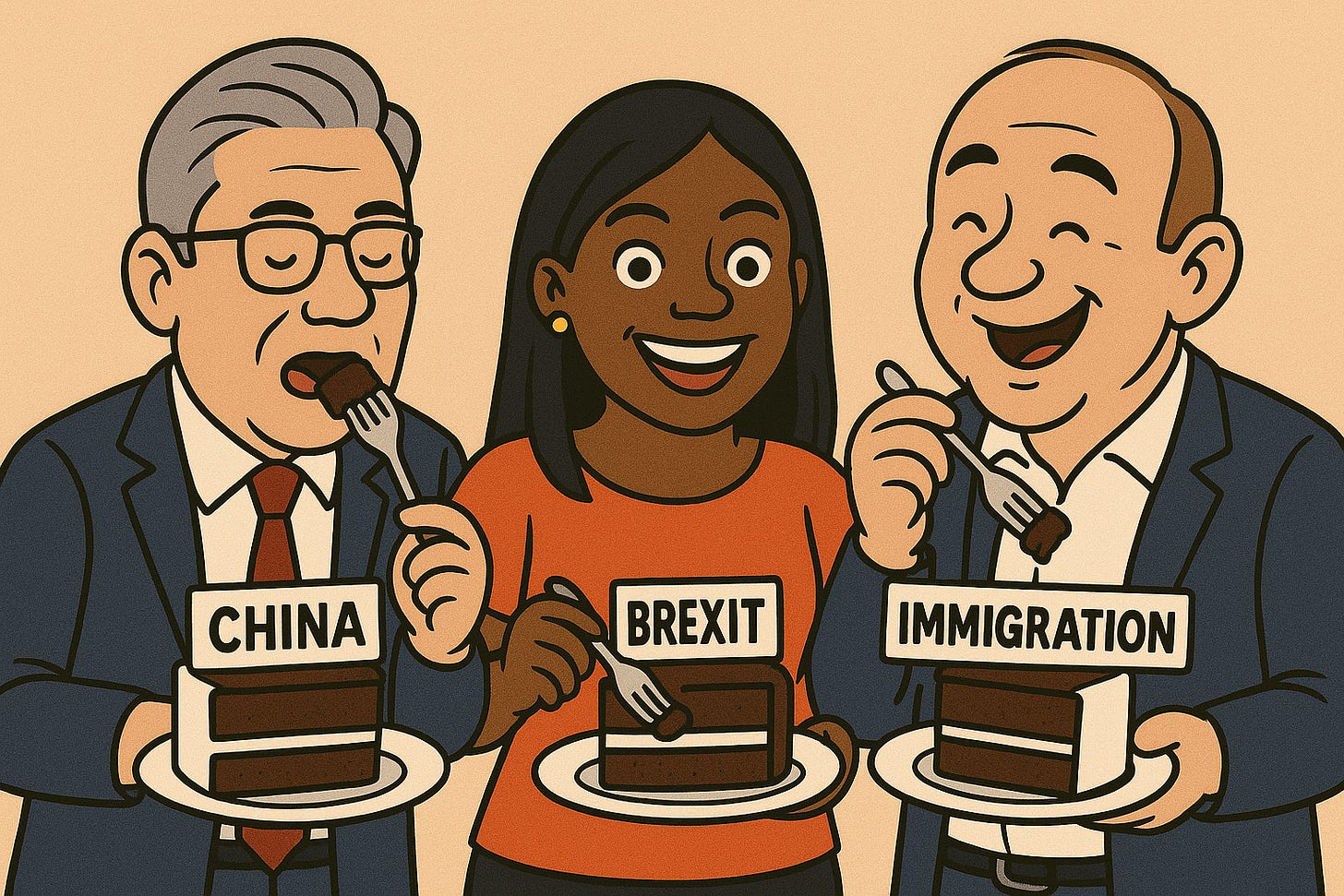British politics is still addicted to cakeism
From China to Brexit and immigration, few are willing to admit the existence of trade-offs
Boris Johnson is a man of voracious appetites, so it is perhaps unsurprising that his political philosophy owed a lot to cake. In the run up to the EU referendum, Johnson famously characterised his policy on cake as “pro having it and pro eating it”. This is the sort of comment that can get a certain type of politician through a short pool interview and generate laughter from sympathetic audiences. But it swiftly dissolves on introduction to reality.
What Johnson meant, of course, is that Britain could retain all the benefits of EU membership (single market access, high environmental standards, free mobile phone roaming abroad) without any of the unpopular bits (free movement of people, inflexible bureaucracy, loss of sovereignty). For Brussels, this type of cherry-picking was anathema.
Consequently, the EU-UK Trade and Cooperation Agreement, signed in December 2020, sliced open supply chains and threw up trade barriers which, according to the Office for Budget Responsibility (OBR), will cut the UK’s long-run productivity by 4%. And, we did not even get to keep free mobile roaming.
The central disadvantage of cakeism is that it is impossible, something the idiom in its original form attempts to make clear. One cannot have a finite object, cake or otherwise, both now and later. Trade-offs are like the second law of thermodynamics – they are immutable. The problem with British politics is that Johnson is not the only politician and Brexit the only issue where we have pretended this is no longer the case.
Take immigration. Keir Starmer has pledged to reduce net migration from the record highs of recent years. As a side note, this is likely to be achieved naturally, as the number of people entering from Ukraine and Hong Kong fall, while visa restrictions introduced under Rishi Sunak cut the numbers from elsewhere.
Yet there go those pesky trade-offs again. Lower levels of immigration will, at least in the short run, have a negative impact on the UK economy. Last year, the OBR found that the higher than forecast increase in net migration would deliver a net reduction in borrowing of around £7.4bn by 2028-29. At the same time, Britain is reliant on foreign workers to fill roles from social care to hospitality.
To be clear, it is perfectly reasonable to argue for lower levels of immigration. Having more people in the country is not a magic money tree. Indeed, the OBR has previously noted that higher migration “could be seen as delaying some of the fiscal challenges of an ageing population rather than a way of resolving them permanently”. This is because if migrants remain in the UK into retirement, they would, like anyone else, place greater pressure on the pension and healthcare systems. The point is, rather, to recognise both the benefits and costs of a given policy.
Then there is China. Over the weekend, fresh from effectively nationalising British Steel, business secretary Jonathan Reynolds said he would not "personally bring a Chinese company into our steel sector", describing steel as a "sensitive area". This precipitated an angry response from China, after which Reynolds performed a fairly undignified U-turn, refusing to definitively rule out future Chinese involvement in the sector.
Britain wants Chinese investment in all sorts of areas and Starmer hopes closer ties with Beijing will help to boost growth. On meeting President Xi Jinping at the G20 summit last November, the prime minister said he wanted relations to be “consistent, durable, respectful”. Yet the trade-off here should be obvious too. China represents a significant national security challenge to the UK.
In some ways, I feel bad for our political leaders. A 2017 report by the National Centre for Social Research found that both Remain and Leave voters essentially wanted to keep all the nice bits of EU membership and ditch the nasty ones. They also want low levels of taxation and high quality public services. So when Johnson, Starmer et al. serve up slices of cake with extra frosting, they are only giving the British people what they crave.




Was that a test run for Trump?, sounds like it. What are the US public servants going to eat?
"China represents a significant national security challenge to the UK." Given the present state of the USA how safe is anything?